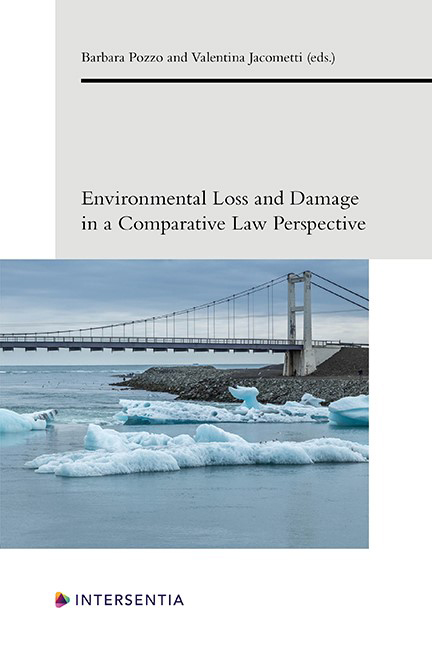Book contents
- Frontmatter
- Preface
- Contents
- List of Authors
- PART I LIABILITY FOR ENVIRONMENTAL HARM IN THE EU
- PART II PRIVATE AND CORPORATE ENVIRONMENTAL LIABILITY
- PART III THE ROLE OF CRIMINAL LIABILITY
- PART IV LEGAL TRANSPLANTS IN THE ENVIRONMENTAL FIELD: THE CASE OF ENVIRONMENTAL LIABILITY
- PART V STATE AND INTERNATIONAL ENVIRONMENTAL LIABILITY
- PART VI CLIMATE CHANGE LIABILITY
- PART VII LIABILITY, CLIMATE CHANGE AND NATURAL HAZARDS: THE ROLE OF INSURANCE
- PART VIII REAL COMPENSATION AND OFFSET REGIMES: THE STRATEGY OF “NO NET LOSS”
- About the Editors
Preface
Published online by Cambridge University Press: 26 May 2021
- Frontmatter
- Preface
- Contents
- List of Authors
- PART I LIABILITY FOR ENVIRONMENTAL HARM IN THE EU
- PART II PRIVATE AND CORPORATE ENVIRONMENTAL LIABILITY
- PART III THE ROLE OF CRIMINAL LIABILITY
- PART IV LEGAL TRANSPLANTS IN THE ENVIRONMENTAL FIELD: THE CASE OF ENVIRONMENTAL LIABILITY
- PART V STATE AND INTERNATIONAL ENVIRONMENTAL LIABILITY
- PART VI CLIMATE CHANGE LIABILITY
- PART VII LIABILITY, CLIMATE CHANGE AND NATURAL HAZARDS: THE ROLE OF INSURANCE
- PART VIII REAL COMPENSATION AND OFFSET REGIMES: THE STRATEGY OF “NO NET LOSS”
- About the Editors
Summary
THE CONFERENCE IN COMO
The sixth EELF Annual Conference was held at the University of Insubria in Como in September 2018. Attendance at the conference was high, as there were more the 140 participants and around 90 speakers and chairpersons.
The conference took a slightly different pattern from the previous European Environmental Law Forum conferences, which were devoted to more general topics, focusing on a more specific but at the same time crosscutting issue: environmental loss and damage.
As announced in the original call for papers, the book that we present here is a collection of peer-reviewed contributions of the speakers at the conference. The book reflects the structure of the conference and has the aim of analysing and comparing the regulation of environmental loss and damage in a comparative, interdisciplinary and both public- and private-law perspective. It delves into conceptual and specific legal issues related to liability, compensation and restoration of damage in different sectors and jurisdictions, also taking into account the contributions of economic analysis in this field of regulation. Specific attention has been devoted to the role that liability and insurance may play in terms of mitigation and adaptation to climate change, as well as the prevention of damage from natural hazards. The scope of analysis encompasses national as well as supranational and international regimes, also in view of possible legal transplants and “cross-fertilisation”. The book includes 30 contributions that are subdivided into eight parts: (i) liability for environmental harm in the EU; (ii) private and corporate environmental liability; (iii) the role of criminal liability; (iv) legal transplants in the environmental field: the case of environmental liability; (v) state and international environmental liability; (vi) climate change liability; (vii) liability, climate change and natural hazards: the role of insurance; and (viii) real compensation and offset regimes: the strategy of “no net loss”.
THE DIALECTIC BETWEEN GLOBAL LAW AND LOCAL LAW
One of the aspects that the conference aimed at underlining was the different keys to understanding the current dialectic between global and local law in the environmental field.
In recent decades, in fact, we have been witnessing the development of a body of rules that tends towards a progressive approach to the development of common operational choices in addressing environmental problems.
Information
- Type
- Chapter
- Information
- Publisher: IntersentiaPrint publication year: 2021
